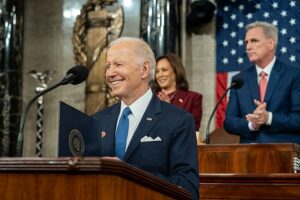How Overturning a Christian Woman’s Death Sentence Brought Pakistan to a Standstill

Supporters of the Tehreek-e-Labaik Pakistan (TLP), a hardline religious political party, block a street during a protest following the Supreme Court decision to acquit Christian woman Asia Bibi, in Islamabad on November 1, 2018. - (Photo by AAMIR QURESHI / AFP/Getty Images)

On Tuesday, Pakistan’s Supreme Court acquitted Asia Bibi, a woman falsely accused of blasphemy, in a landmark verdict. This long-delayed, historic decision freed Bibi after spending nine years on death row. “It is ironic that in the Arabic language, the appellant’s name Asia means ‘sinful’,” the court’s statement read. “But in the circumstances of the present case, she appears to be a person, in the words of Shakespeare’s King Lear, ‘more sinned against than sinning’.”
Repercussions were almost immediate. Radical, right-wing Islamist groups mounted calls for protests, bringing the entire country to a standstill. Roads were blocked, cellular services interrupted, and schools were shut down.
Political workers of the right-wing group, Tehreek-e-Labbaik Pakistan — known as the TLP — took to the streets in protest, blocking major highways and thoroughfares in Karachi, Lahore and Islamabad. The leader of the TLP, Khadim Hussain Rizvi, regularly turns to social media to incite violence against the government and the military. He has a verified Twitter account with over 60,000 followers. At their public meetings, Rizvi stands in the middle of a sea of men. Wearing his trademark black turban, he delivers profanity-laden speeches in Punjabi. There are no women at their public meetings and protests, ever.
This is not the first time that the TLP has taken to the streets in protest. Last year, Rizvi’s followers brought the capital city of Islamabad to a halt over a minor change to an electoral oath, an action that Rizvi called “blasphemous.” The group forced the resignation of Pakistan’s federal law minister and signed a deal granting amnesty to their activists that incited violence during the protests. This year the TLP won more than two million votes in the election, and secured two seats in the National Assembly.
In addition, the TLP has been vocal in their support for Mumtaz Qadri — the man who was hanged in 2011 for killing the former governor of the Punjab province, Salmaan Taseer. In 2016, the TLP held a four-day-long sit-in at Islamabad’s D-chowk to protest Qadri’s hanging. Prior to his assassination, Taseer had expressed unequivocal support for Asia Bibi’s case, and attempted to roll back the blasphemy laws under which she was indicted.
Pakistan’s blasphemy laws are a colonial legacy. First introduced by the British in 1860, the laws criminalize any action offending religious sentiments or defiling sacred spaces. During a period of Islamization under the military ruler General Zia ul-Haq in the 1980s, the law was broadened to impose the death penalty for insulting the Prophet Muhammad, which remains the law to this day. The U.S. Commission on International and Religious Freedom estimates that there are 40 people currently on death row or serving life sentences for blasphemy in Pakistan.
Pakistan’s Prime Minister, Imran Khan, openly defended the blasphemy laws before elections this past July. “We are standing with Article 295C and will defend it,” he said at a gathering of Muslim leaders in Islamabad. Some saw Khan’s pre-election defense as an opportunistic political calculation, designed to broaden his appeal to right-wing Islamic groups and in an effort to earn votes. However, in the aftermath of Bibi’s acquittal and the subsequent protests, Khan momentarily changed track.
In a televised broadcast Wednesday evening, Khan claimed that hardliners were, “inciting [people]for their own political gain,” stating that they are, “doing no service to Islam.”
Less than twenty-four hours later, Khan departed for an official visit to China. In his absence, the government surrendered and signed a deal with the TLP. According to the terms of this deal, the TLP agreed to cease protests as long as arrested protestors are released without charge. Additionally, the government will not block a review of the Supreme Court’s ruling, and Asia Bibi’s name will be placed on the Exit Control List, banning her from leaving the country and seeking asylum abroad. Immediately after this deal was signed, Asia Bibi’s lawyer, Saif ul Mulook, fled Pakistan in fear for his life. “[The government] cannot even implement an order of the country’s highest court,” he told AFP before boarding a plane to Europe.
On Friday, the only Christian cemetery in Karachi — the Gora Qabaristan — cancelled their All Souls Day Mass due to security threats. Throughout this week, churches and Catholic schools across the country have been on high-alert. For Christians and other religious minorities in Pakistan, Asia Bibi’s acquittal should have been a victorious occasion. Now, they fear for their lives more than ever before.
Zuha Siddiqui is a journalist and is currently pursuing an MA in Journalism and Near Eastern studies at NYU. She tweets at @SiddiquiZuha





